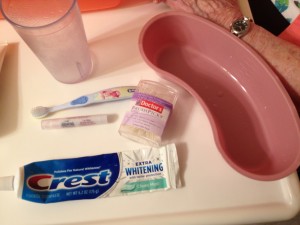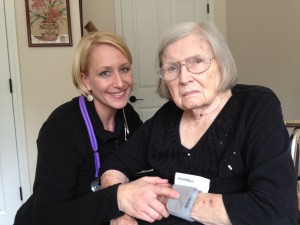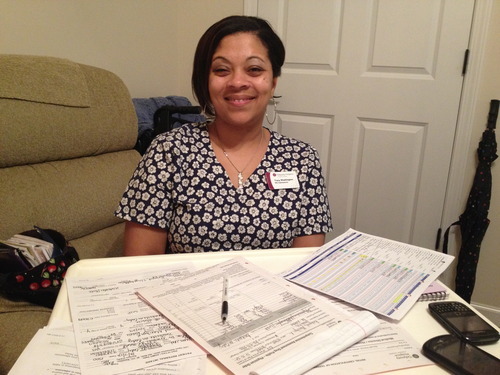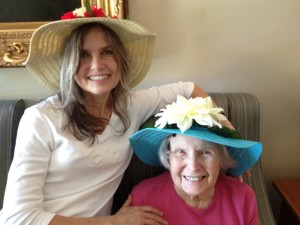Open Letter to Professional Caregivers
I have just placed my mom into a skilled care facility. The transition is difficult for us both. Educating the staff on what works best with my mom is a delicate dance between what they do and what we expect. We are still making adjustments but for all you folks doing a similar thing, here is a letter I’ve composed to help communicate our position. Maybe it will help you, too.
Dear Caregiver,
Have I told you how important you are to us lately? Along this journey with my mother and Alzheimer’s disease, you play a very important role. You have the power to guide the outcome of her day by your sensitivity, creativity and kind nature. What helps my mother helps me. And when Momma’s happy, everybody is happy.
Forgive me if I ever question the way you are caring for my mother. You see, I am responsible for her welfare. Before I chose you to help, I was providing her care. Through trial and error, I figured out what methods worked best to achieve a pleasant day while accomplishing the activities of daily living. When I could no longer handle the high demands of providing care alone, I turned to you for assistance. However, I have the experiences that you could benefit from to help you do your job.
I have the privilege of knowing my mother very well. I know her history, her preferences, and her personality. I know how she might have responded to your personality when she was well. Now that she has dementia and can’t use words to convey her wishes, we both need to take the time to listen to her nonverbal cues. Then we will best know how to approach and achieve what we are here to do.
We are both here, communicating with each other for one purpose―to care for my mom. For me, this is a daunting task that I take very seriously. I often feel helpless and afraid that I’m not doing everything I should to care for her. At times, I have chosen to look the other way when things seem amiss because I don’t want to become estranged from you. I need you. I have learned a lot from you and value your input. I couldn’t do this without you!
I need to trust your care for my loved one. I know this isn’t an easy job for either of us. I have added you to my team in hopes of working together. Your interaction with my mother is of major importance to her quality of life. If you’re having difficulty, let’s put our heads together to come up with a solution. And when we do communicate, please pass that information on to the next caregiver so our solution and awareness won’t be lost.
In this information age, there are solutions to our challenges with a click of a mouse, a visit to the library, or time spent watching a DVD. I encourage you to continue to take the time to educate yourself on all aspects of your job. Please don’t be offended if I offer a suggestion when I think I know a better way. And I’ll welcome any suggestions from you. I want to keep the conversation going. I am for you, not against you. I want us to succeed.
I believe I speak for all the families who rely on someone else to care for their loved ones. Our peace of mind and the quality of someone’s life depend on it.
Thank you.








Recent Comments